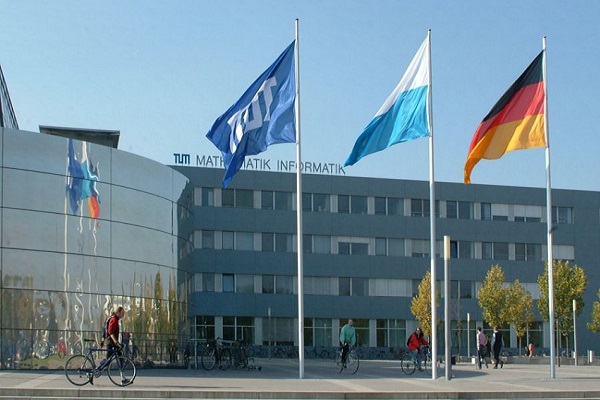ETH Zurich: A Pinnacle of Scientific Excellence and Innovation

Introduction
ETH Zurich, the Swiss Federal Institute of Technology in Zurich, stands as one of the world’s leading universities in science and technology. Founded in 1855, ETH Zurich has a long and illustrious history marked by groundbreaking research, significant contributions to global scientific knowledge, and a commitment to fostering innovation and creativity. This article delves into the multifaceted aspects of ETH Zurich, exploring its history, academic structure, research accomplishments, notable alumni, and its role in shaping the future of science and technology.
Historical Background
ETH Zurich was established by the Swiss Confederation in 1855, with the aim of promoting higher education and scientific research in Switzerland. Initially named the Swiss Federal Polytechnic School, it was designed to complement the existing universities in Switzerland and to cater to the growing industrial and scientific needs of the country.
From its inception, ETH Zurich embraced a forward-thinking approach, integrating education, research, and practical application. This model proved highly successful, and the institution rapidly gained a reputation for excellence. By the late 19th century, ETH Zurich had already made significant strides in various scientific fields, laying a solid foundation for its future achievements.
Academic Structure
ETH Zurich is organized into 16 departments that cover a broad spectrum of scientific and engineering disciplines. These departments include Architecture, Civil, Environmental and Geomatic Engineering, Computer Science, Biosystems Science and Engineering, Mechanical and Process Engineering, Materials, Information Technology and Electrical Engineering, Physics, Chemistry and Applied Biosciences, Biology, Mathematics, and Management, Technology, and Economics.
Each department operates with a high degree of autonomy, fostering an environment where interdisciplinary collaboration is encouraged. The academic programs at ETH Zurich are designed to provide students with a strong theoretical foundation while also emphasizing practical skills and hands-on experience. This dual focus ensures that graduates are well-prepared to tackle real-world challenges.
Research Excellence

ETH Zurich is renowned for its research contributions across various scientific domains. The university’s research strategy is driven by a commitment to addressing some of the world’s most pressing challenges, including climate change, energy sustainability, health, and information technology.
Climate and Environmental Research
One of the key areas of focus at ETH Zurich is climate and environmental research. The university houses several leading research centers dedicated to studying the impacts of climate change and developing sustainable solutions. The Institute for Atmospheric and Climate Science (IAC) and the Swiss Federal Institute for Forest, Snow and Landscape Research (WSL) are among the prominent institutions within ETH Zurich that conduct cutting-edge research in these fields.
Energy Sustainability
Energy sustainability is another critical area where ETH Zurich has made significant contributions. The Energy Science Center (ESC) at ETH Zurich brings together researchers from various disciplines to develop innovative technologies and strategies for sustainable energy production and consumption. From advancements in solar power and energy storage to the development of smart grids and efficient energy systems, ETH Zurich is at the forefront of the global energy transition.
Health and Biomedical Research
In the realm of health and biomedical research, ETH Zurich has established itself as a leader in developing new therapies and medical technologies. The Institute for Biomedical Engineering (IBT) and the Department of Health Sciences and Technology (D-HEST) are key players in this domain. Research initiatives at ETH Zurich include the development of novel diagnostic tools, regenerative medicine, and precision medicine approaches that aim to tailor treatments to individual patients.
Information Technology and Artificial Intelligence
ETH Zurich is also a powerhouse in the fields of information technology and artificial intelligence (AI). The Department of Computer Science (D-INFK) is home to world-class researchers who are pushing the boundaries of AI, machine learning, robotics, and data science. The university’s strong emphasis on interdisciplinary collaboration has led to groundbreaking advancements in AI applications across various industries, from healthcare to finance to autonomous systems.
Innovation and Entrepreneurship
ETH Zurich’s commitment to innovation and entrepreneurship is evident in its vibrant startup ecosystem and numerous initiatives aimed at fostering creativity and business acumen among its students and researchers. The ETH Zurich Innovation and Entrepreneurship Lab (ieLab) serves as a hub for aspiring entrepreneurs, providing them with the resources, mentorship, and networking opportunities needed to turn their ideas into successful ventures.
Over the years, ETH Zurich has produced numerous successful startups that have made significant impacts in their respective fields. Examples include Climeworks, a company specializing in carbon capture technology; Sensirion, a leading manufacturer of environmental and flow sensors; and GetYourGuide, a popular online platform for booking travel experiences.
Notable Alumni
ETH Zurich boasts an impressive list of alumni who have gone on to achieve great success in academia, industry, and beyond. Some of the most notable figures include:
Albert Einstein
Perhaps the most famous alumnus of ETH Zurich is Albert Einstein, who studied at the university from 1896 to 1900. During his time at ETH Zurich, Einstein laid the groundwork for his later groundbreaking theories in physics. He returned to the university as a professor in 1912, further cementing his legacy at the institution.
Felix Bloch
Felix Bloch, a Nobel Prize-winning physicist, earned his doctorate from ETH Zurich in 1928. Bloch made significant contributions to the field of quantum mechanics and is best known for his work on the theory of solids and nuclear magnetic resonance.
Richard Ernst
Richard Ernst, another Nobel laureate, received his doctorate in physical chemistry from ETH Zurich in 1962. He was awarded the Nobel Prize in Chemistry in 1991 for his contributions to the development of high-resolution nuclear magnetic resonance (NMR) spectroscopy, a technique widely used in chemistry and biochemistry.
Ursula Keller
Ursula Keller, a pioneering physicist and professor at ETH Zurich, has made significant contributions to the field of ultrafast laser science. Her work has advanced the development of ultrafast lasers and their applications in various scientific and industrial domains.
Campus and Facilities
ETH Zurich’s main campus, situated in the heart of Zurich, offers state-of-the-art facilities that support cutting-edge research and education. The campus features modern laboratories, lecture halls, libraries, and collaborative spaces designed to foster interaction and innovation.
The university’s Science City (Hönggerberg) campus, located on the outskirts of Zurich, is a hub for scientific research and technological development. This campus houses several research institutes, including the Swiss Light Source (SLS) and the Swiss National Supercomputing Centre (CSCS), both of which provide world-class resources for advanced scientific research.
International Collaborations and Partnerships
ETH Zurich’s global impact is amplified through its extensive network of international collaborations and partnerships. The university actively engages in research collaborations with leading institutions worldwide, participating in numerous international research consortia and projects.
Additionally, ETH Zurich is a member of several prestigious academic networks, including the League of European Research Universities (LERU) and the Global Alliance of Technological Universities (GlobalTech). These affiliations facilitate the exchange of knowledge and expertise, fostering a collaborative approach to addressing global challenges.
Commitment to Sustainability
ETH Zurich is deeply committed to sustainability, both in its research initiatives and its campus operations. The university has implemented numerous sustainability programs aimed at reducing its environmental footprint and promoting sustainable practices.
The ETH Zurich Sustainability Office coordinates efforts across the university to achieve sustainability goals, including energy efficiency, waste reduction, and sustainable transportation. The university’s commitment to sustainability is also reflected in its research, with numerous projects focused on developing sustainable technologies and solutions.
Future Prospects
As ETH Zurich continues to build on its legacy of excellence, the future looks promising. The university’s strategic focus on interdisciplinary research, innovation, and international collaboration positions it well to address the complex challenges of the 21st century.
ETH Zurich’s emphasis on fostering a culture of curiosity, creativity, and critical thinking ensures that it will remain at the forefront of scientific and technological advancements. By nurturing the next generation of scientists, engineers, and innovators, ETH Zurich is poised to make lasting contributions to global knowledge and societal progress.
Conclusion
ETH Zurich stands as a beacon of scientific excellence and innovation, with a rich history and a bright future. Its commitment to advancing knowledge, fostering innovation, and addressing global challenges has earned it a well-deserved reputation as one of the world’s leading universities. Through its groundbreaking research, exceptional academic programs, and vibrant entrepreneurial ecosystem, ETH Zurich continues to shape the future of science and technology, making a profound impact on society and the world at large.





